Are you looking for a peanut oil substitute? Whether you don’t have any peanut oil available or are allergic to nuts, there are a variety of other oils you can use.
You’re probably familiar with this oil if you have a deep-fryer at home. This oil is used for deep frying. The refined kind of peanut oil is the most often used.
Why is it so often used for deep frying? Because it has a high smoke point of 437 degrees Fahrenheit. The taste of oil will be affected, and it will destroy the nutrients if it over the smoke point.
So, what are the best oils to use as a peanut oil substitute? You’ll find out about it shortly!
What is Peanut Oil?
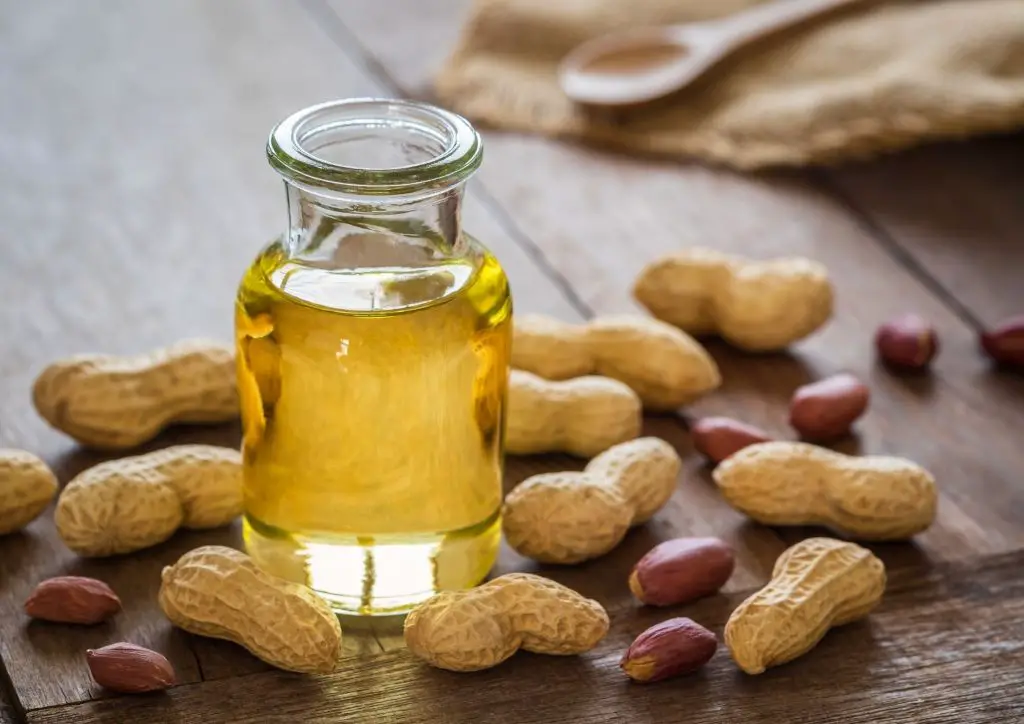
It’s a vegetable oil known as groundnut oil or Arachis oil. It is made from the seeds of the peanut plant.
It’s ideal for baking and sautéing. But because of its high smoke point, it’s also suitable for high-temperature frying. There are different types of peanut oil. The refined is a bleached and deodorized variety used in restaurants.
The cold-pressed peanut oil is made by crushing peanuts to make the oil, which has a nutty smell and a sweet taste. While gourmet oil is an unrefined oil that has a more intense flavor. And peanut oil blends are a cheaper option that blends peanut oil with other oils that taste the same.
According to AboveHouse, peanut oil is rich in vitamin E. It can lower heart disease risks, increase insulin sensitivity, help with weight loss, and prevent cancer. It can also help with skin conditions such as eczema and scalp crusting.
Despite its numerous benefits, peanut oil is not suitable for everyone. That’s why people are looking for alternatives to peanut oil.
Reasons Why You Should Replace Peanut Oil
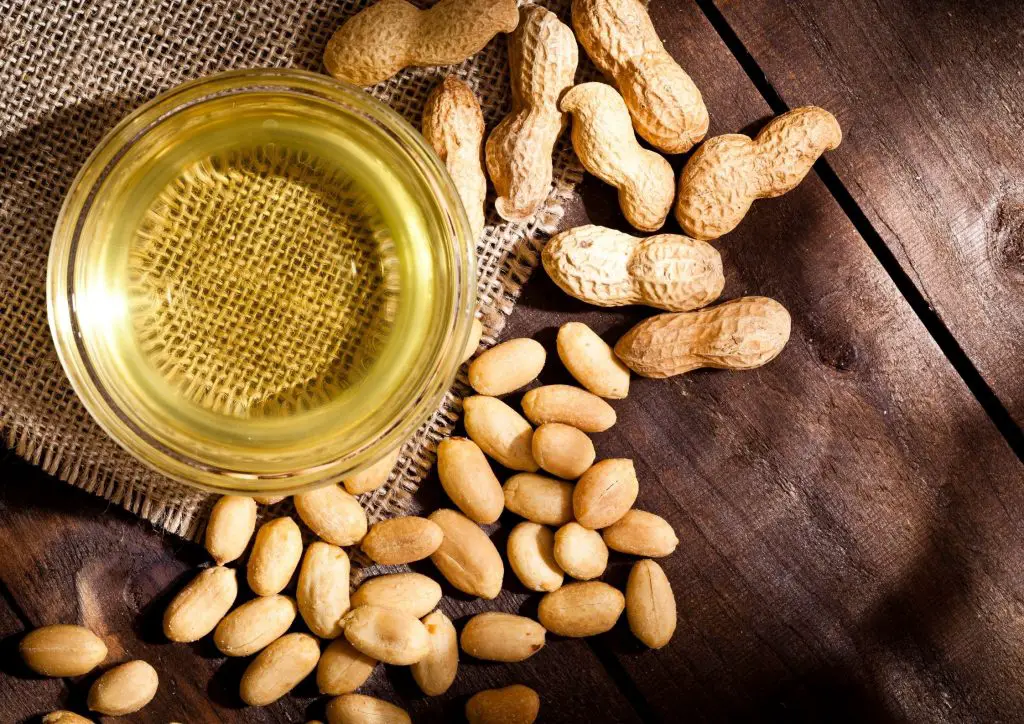
- It is expensive. Peanut oil is two times more expensive than animal-derived oils.
- It can trigger allergic reactions. It can cause skin reactions, runny noses, throat tightening, dizziness, loss of consciousness, and breathing difficulties.
- It is prone to oxidation, so it’s not a great option for cooking.
- It contains high levels of omega-6 fatty acids that are pro-inflammatory. Western diets already have a high amount of these fats, which may increase the risk of some diseases.
Common Allergies That Can Trigger With Peanut Oil

There is a lot of confusion about whether people who have a peanut allergy also have an allergy to peanut oil. Most of us think that we are allergic to peanut oil.
However, that allergy is caused by the protein found in peanuts. According to Mayo Clinic, peanut allergy happens when your immune system misidentifies peanut proteins as dangerous.
Peanut allergy is one of the most common reasons for having a severe allergy attack. It can be very dangerous for people with peanut allergies to even have a small amount of peanuts in their food.
You don’t have to give up your favorite fried foods because you’re allergic to peanuts. There are some more alternatives to avoid this allergy.
8 Best Peanut Oil Substitute For All Kinds of Dishes
1. Canola Oil

Canola oil is a versatile alternative to peanut oil with many health benefits. It is made from the rapeseed plant that is low in trans fat and high in monounsaturated fats.
Because of its high smoke point, canola oil is ideal for grilling in your outdoor kitchen. It is also a great ingredient in baking and dressing because it does not have a strong flavor. The smoke point of refined canola oil is 400°F.
2. Almond Oil
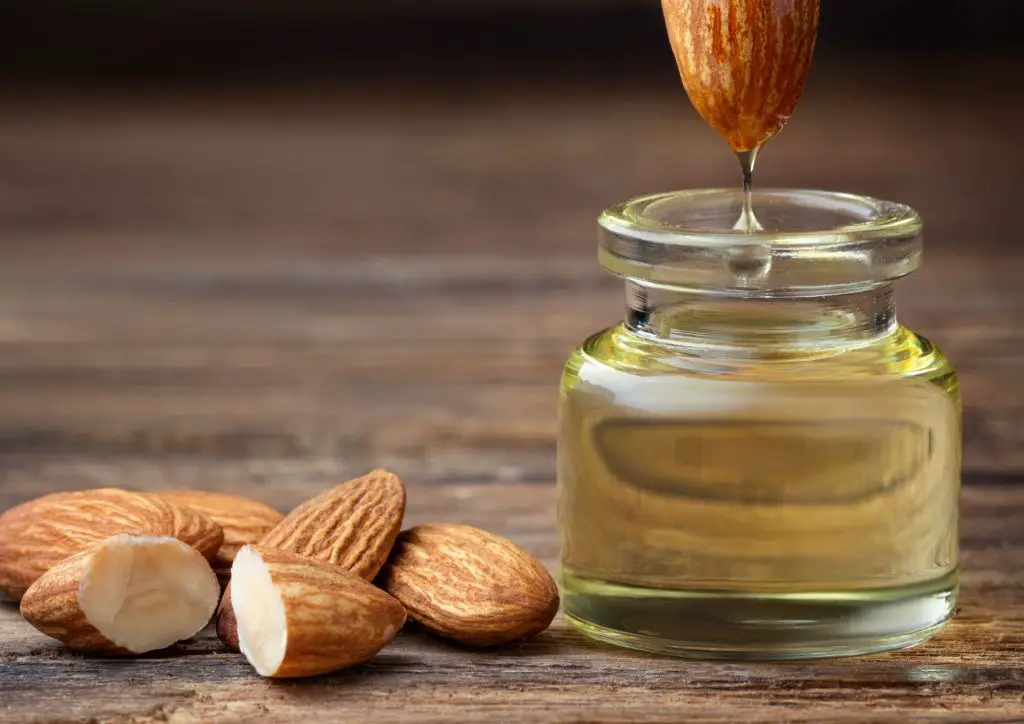
Almond oil may not have the same flavor as peanut oil. It does have a nice nutty scent and flavor.
Almond oil contains monounsaturated and polyunsaturated fats, omega-3 fatty acids, and vitamin E, which are essential if you have bad cholesterol. According to a study, it may also be helpful to your skin.
You should not use cold-pressed almond oil for sauteing or deep-frying because it can lose some nutritional value when overheating. You should use it as a finishing oil for cooked foods and as a dressing for salad.
While the refined almond oil has a higher smoke point of 420°F, making it ideal for roasting and sautéing.
3. Grapeseed Oil

Grapeseed oil is a good substitute for peanut oil because it is clean and crisp and has a high smoke point. It has a lot of health benefits, and you can use it in a lot of different ways when cooking.
It is from the seeds that are leftover after making wine. This oil is high in vitamin E, which helps to support the immune system and protects the skin from free radical damage. You can also use it to hydrate and lighten the skin, remove make-up, and tighten pores.
Because of its neutral flavor, grapeseed oil is ideal for stir-frying, sautéing, searing meat, grilling, and roasting vegetables.
4. Walnut Oil
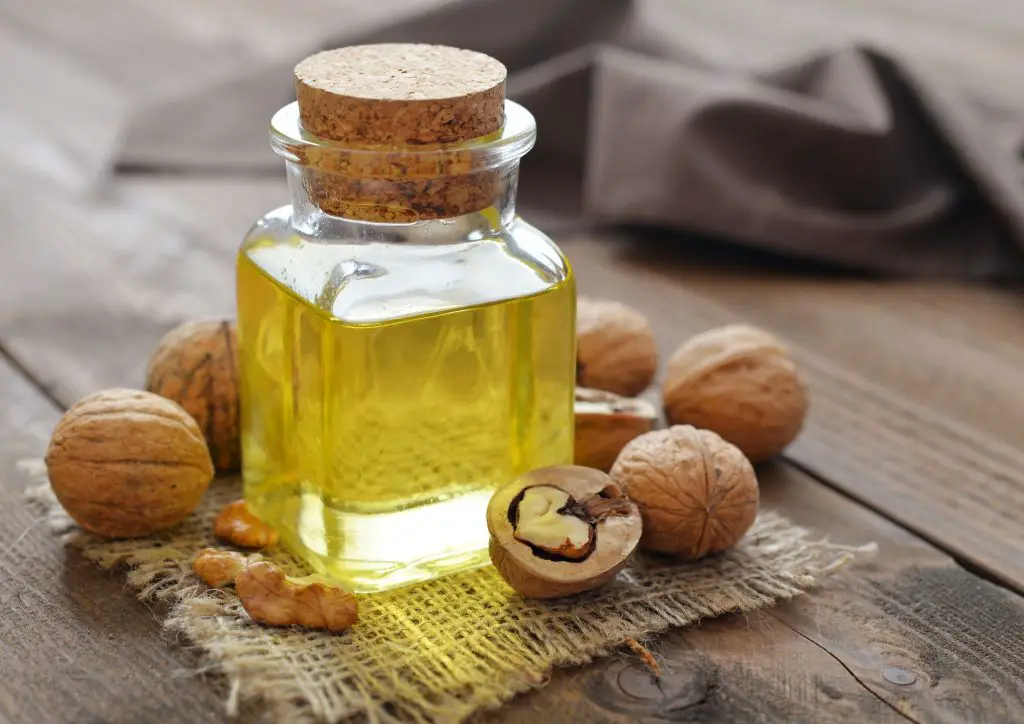
Another healthy option for peanut oil is walnut oil, but one of the most expensive. It’s made from walnuts, and you can use it for a wide variety of purposes.
Walnut oil is high in vitamins C, E, B1, B2, B3, and niacin, all beneficial to your brain function. Walnut oil has a nutty, rich flavor. It’s excellent for flavoring your fish, chicken, and steaks, as well as pasta and salads.
You can’t use it for deep frying or high-temperature cooking. It tends to taste bitter when heated, so it’s better for you cooked foods.
5. Safflower Oil

Safflower oil comes from the seeds of the safflower plant, which is a sunflower relative. This oil is flavorless, light yellow, and does not solidify when kept in cold temperatures.
It has a high smoke point of 510 degrees Fahrenheit and is high in unsaturated fatty acids. It is the oil for you if you enjoy eating fried foods.
The high smoke point of monounsaturated safflower oil makes it ideal for sauteing, deep-frying, stir-frying, and searing. While polyunsaturated safflower oil is perfect as a salad dressing. Just store it in the refrigerator or a cold, dark place because it might spoil quickly.
6. Corn Oil
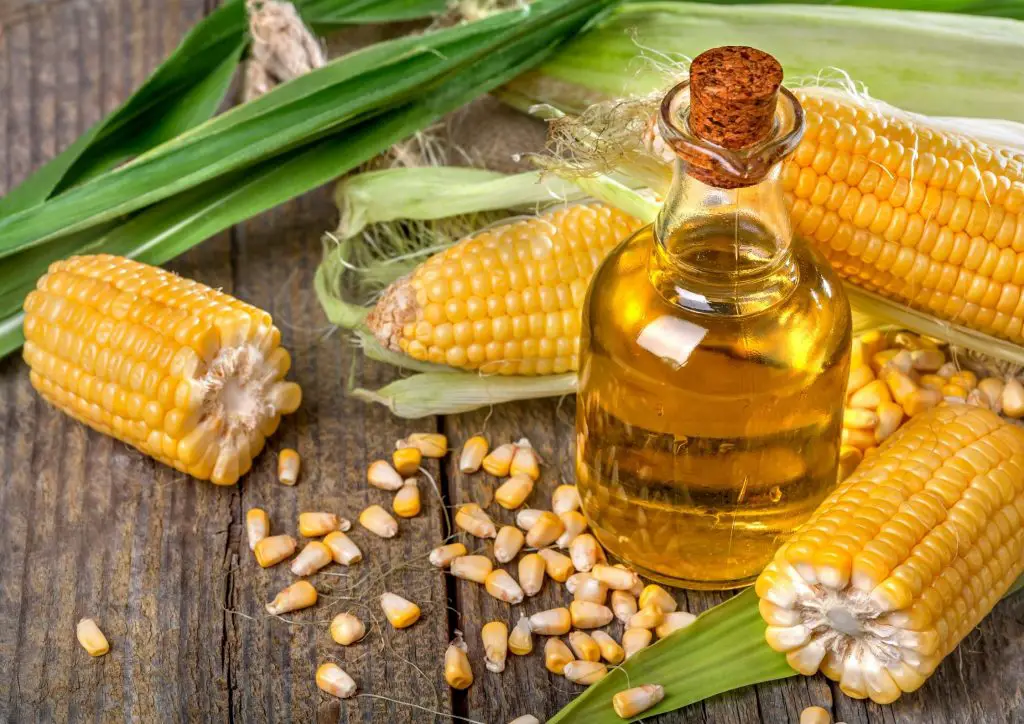
Corn oil is one of the commonly available and inexpensive cooking oils on the market. It comes from extracting the germ with hexane from the corn seed.
Refined corn oil has a high smoke point of 450° F. The unrefined form only has a medium heat smoke point of 320° F.
But as a friendly reminder, you should limit your intake of corn oil since it includes high levels of polyunsaturated fat. It may increase your risk of prostate and breast cancer.
Sautéing, searing, and deep-frying are the best uses for refined corn oil. While the unrefined corn oil is ideal for mild sautéing and sauces, salad dressings, margarine, and other cold use.
7. Vegetable Oil
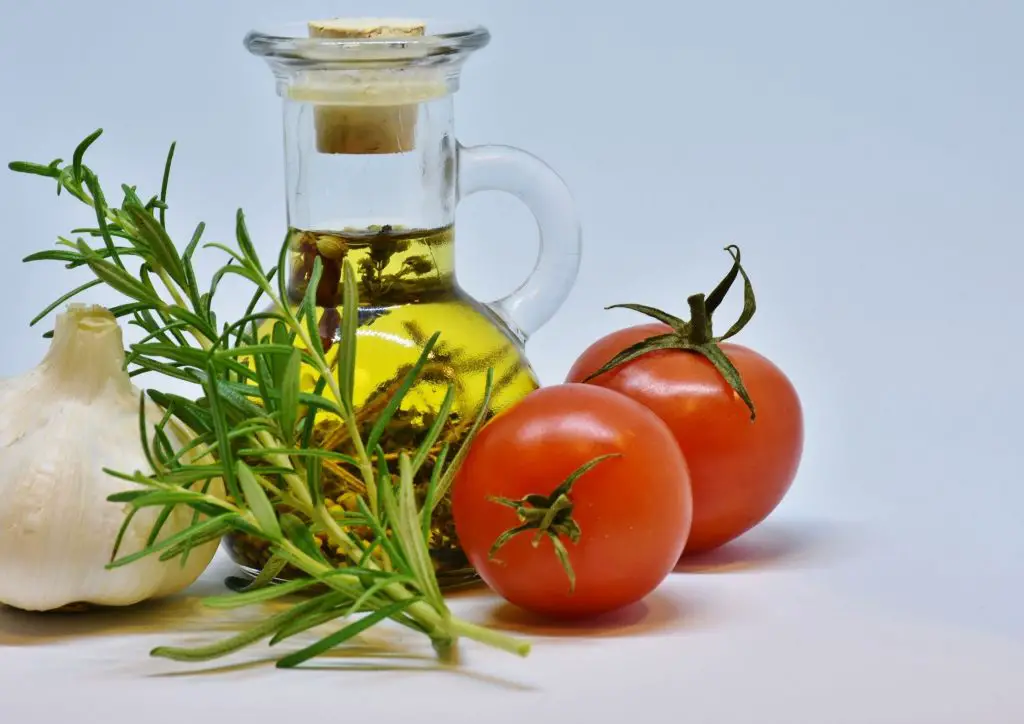
Suppose you’re on a tight budget and would prefer a less expensive alternative to peanut oil. In that case, vegetable oil is a great choice. However, it is not the healthiest oil available.
It is often a mixture or blend of different types of oils. It is a general oil used for cooking and is usually a cheap alternative.
The problem here is that it’s difficult to tell what ingredients were used to make the oil. But, if you want to use it, make sure to check the amount of saturated fat listed on the nutritional labels.
It also has a high smoke point of 450 degrees Fahrenheit, making it ideal for stir-frying and deep-frying foods.
8. Avocado Oil
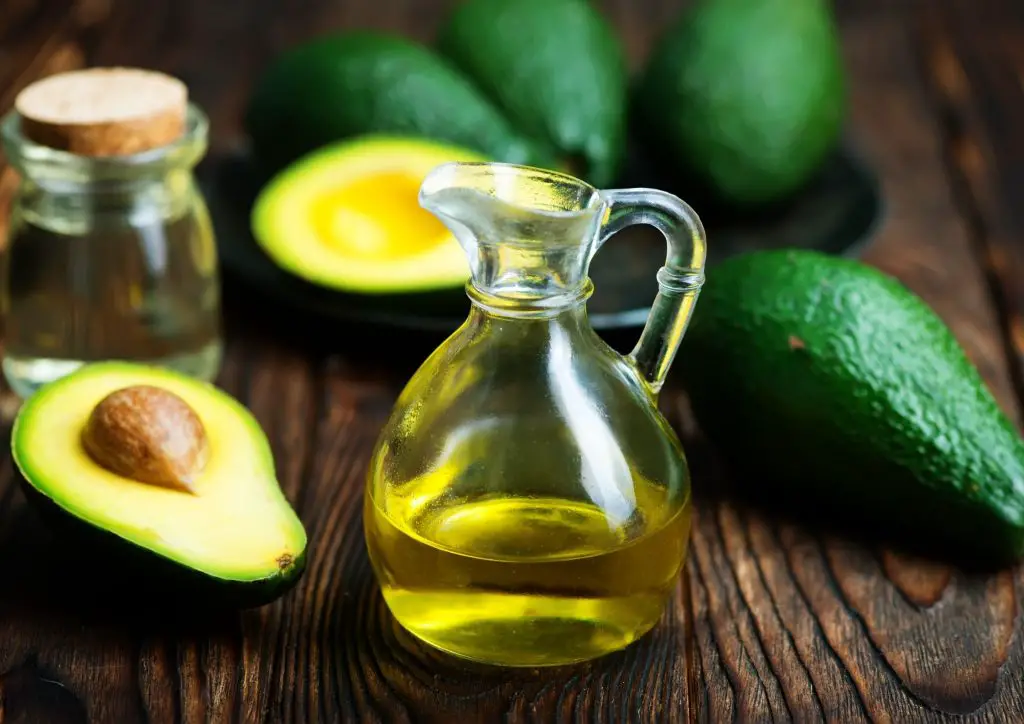
Many oils come from seeds or grains, but avocado oil comes from the fruit’s pulp. Making this choice gives in a slightly stronger flavor.
Avocado oil is a keto-friendly and versatile oil. Since it is high in monounsaturated fatty acids and anti-inflammatory, this oil is considered heart-healthy.
Avocado oil has one of the highest smoke points at 520 degrees Fahrenheit. It is great for sautéing and searing, serving as a finishing oil due to its rich flavor.
People Also Ask
How do I store oil, and how long can I keep it?
When kept in a cool, dark place, oils will last for three to six months. If there is nowhere cool to put them, they must be put in the fridge. Buy small amounts of oils you don’t use very often.
What oil is good for baking?
Canola oil is the best oil for baking because it doesn’t add a strong flavor. It lets the flavor of your cake come through while keeping the cake moist.
Can you reuse cooking oil?
Reusing cooking oil is a great way to save money and cut down on household waste. You can reuse cooking oil as much as you like until the particles start to break down and the oil becomes unstable. It can make your food greasy and gross even before you cook it.
Conclusion
Peanut oil is excellent cooking oil. It’s high in vitamins and minerals, has a high smoke point, and a delicious flavor, making it ideal for cooking. However, it is not suitable for everyone.
Choosing the best peanut oil alternative is based on a variety of factors. Before deciding on the type of oil to use, think about the health benefits and some precautions.
These oils are beneficial to your health, but that does not mean they are appropriate for everyone. If you have allergies to certain ingredients, be mindful.
So, what do you think is the best substitute for peanut oil? Let me know in the comments!


